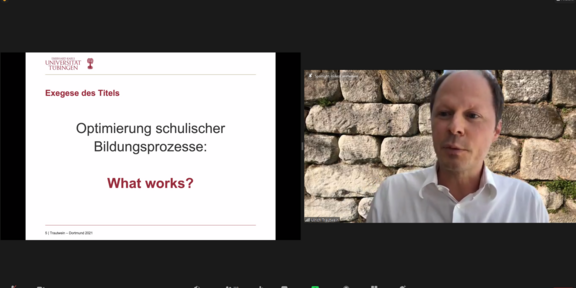6th Dortmund Symposium on the optimization of educational processes in schools

Leading German educational researchers discussed the topic "Optimizing school educational processes - What works?" at the sixth Dortmund Symposium of Empirical Educational Research of the Center for Research on Education and School Development on June 24, 2021.
At the 6th Dortmund Symposium of the Institute for School Development Research, renowned German Educational scientists from various disciplines addressed the question of what advantages intervention studies have, what needs to be taken into account, and what limitations there are. Professor Ulrich Trautwein from the Hector Institute in Tübingen, for example, even singled them out as the decisive building block for quality evidence orientation. Using examples such as the two projects "Effectiveness of Contemporary Witness Interviews in History Teaching" and "Motivational Support in Mathematics Teaching (MoMa)", he made clear how the interventions carried out lead to improvements in performance. At the same time, however, he also highlighted limitations of the possibilities. For example, it is not possible to generalize the approach to all subjects. This was also emphasized by other scientists, who were able to present the opportunities and limitations of interventions in a wide range of current studies. Professor Anita Schilcher from the University of Tübingen, for example, presented initial findings from her project Fachintegrierte Leseförderung Bayern (FiLBY), which showed little effect on reading fluency, but did have an impact on reading comprehension, especially among students with reading difficulties. The day showed above all that there is no one-size-fits-all approach to interventions that can always be successfully applied to all areas, but that they have to be applied individually. Many thanks to all speakers for the exciting insights!






![[Translate to English:] [Translate to English:]](/storages/ifs-ep/_processed_/3/0/csm_iStock-1180187740_Orbon_Alija_bc1514e180.jpg)